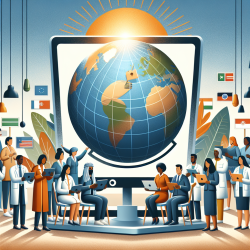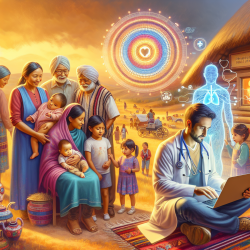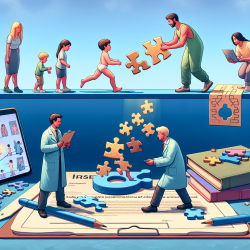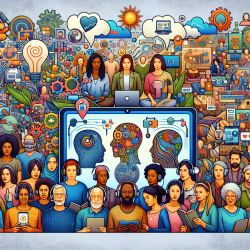The research article "WHO's Director-General candidates: visions and priorities" offers invaluable insights that can significantly enhance the skills of practitioners in the field of online therapy. This article explores the diverse perspectives and strategies proposed by the six candidates vying for the position of Director-General of the World Health Organization (WHO). By integrating these visions, online therapists can improve their practice, ensure better outcomes for their clients, and stay ahead in the rapidly evolving landscape of digital health services.
1. Embrace a People-Centered Approach
David Nabarro, one of the candidates, emphasizes the importance of people-centered health policies. He advocates for engaging communities and ensuring that health services are accessible and responsive to the needs of individuals. Online therapists can adopt this approach by:
- Conducting regular feedback sessions with clients to understand their needs and preferences.
- Customizing therapy plans to suit individual client circumstances.
- Ensuring that the therapy platform is user-friendly and accessible to people with varying levels of digital literacy.
2. Focus on Mental Health and Wellbeing
Tedros Adhanom Ghebreyesus highlights the importance of mental health, placing it at the center of the global health agenda. He proposes expanding access to mental health services and integrating mental health into primary care. Online therapists can contribute to this vision by:
- Offering a range of mental health services, including preventive care, diagnostics, and treatment for conditions like anxiety, depression, and stress.
- Collaborating with schools and community organizations to raise awareness about mental health.
- Providing resources and support for caregivers and families of individuals with mental health conditions.
3. Leverage Technology and Innovation
Miklós Szócska advocates for the use of technology and innovation to improve health outcomes. He emphasizes the potential of big data, mobile technologies, and point-of-care diagnostics. Online therapists can enhance their practice by:
- Utilizing data analytics to track client progress and adjust therapy plans accordingly.
- Incorporating mobile health apps to provide clients with additional tools and resources for managing their mental health.
- Using telehealth platforms to reach clients in remote or underserved areas.
4. Promote Universal Health Coverage
Several candidates, including Tedros Adhanom Ghebreyesus and Sania Nishtar, emphasize the importance of universal health coverage (UHC). They advocate for ensuring that all individuals have access to essential health services without financial hardship. Online therapists can support this goal by:
- Offering sliding scale fees or pro bono services for clients who cannot afford therapy.
- Partnering with insurance providers to cover online therapy sessions.
- Advocating for policies that support mental health parity and coverage for digital health services.
5. Strengthen Health Systems and Workforce
Philippe Douste-Blazy and Flavia Bustreo focus on strengthening health systems and the health workforce. They propose investing in training and development to ensure that health professionals are equipped to meet emerging health challenges. Online therapists can contribute by:
- Participating in continuous professional development and training programs.
- Collaborating with other health professionals to provide comprehensive care for clients.
- Advocating for policies that support the mental health workforce and address issues like burnout and job satisfaction.
By implementing these strategies, online therapists can not only improve their practice but also contribute to the broader goals of global health and sustainable development. To read the original research paper, please follow this link:
WHO's Director-General candidates: visions and priorities.










